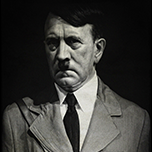Hostul a fost schimbat. Daca vedeti serverul offline readaugati rpg.b-zone.ro sau 141.95.124.78:7777 in clientul de sa-mp
×
Narcissists are more likely to make bad decisions due to their overconfidence and refusal to take advice from experts
-
Recently Browsing 0 members
- No registered users viewing this page.


Recommended Posts